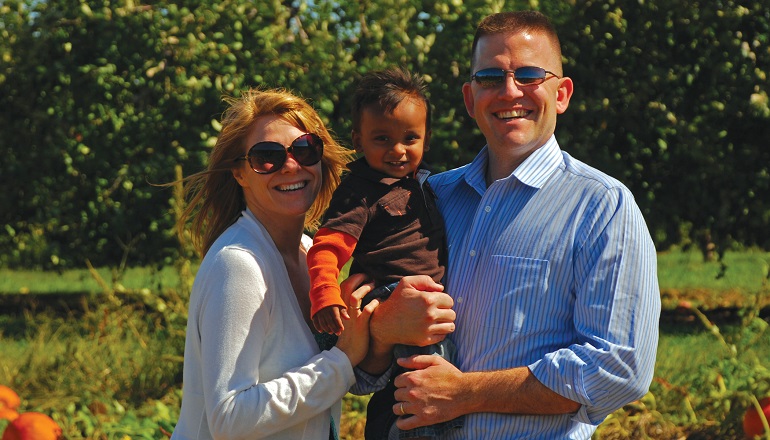Growing up in a mostly white, Midwestern town in the late 1970s and early 80s, watching reruns of The Donna Reed Show and Leave It to Beaver, I figured I would finish school, find a girl to marry, buy a little house with a white picket fence, and have a couple of kids who looked like me. This was the middle-class American dream, and at the time it never occurred to me that life would turn out any other way.
But life is funny.
I found the girl, we got married, eventually bought a house—sans picket fence—and settled into a comfortable life. We were young and had plenty of years ahead of us; we knew we would eventually be blessed with children, so we decided to let nature run its course. But two years turned to 12 and still we were childless. A trip to the doctor and a few tests revealed that nature was not on our side, and we had to choose a new path to follow: IVF, adoption, or living childless. We had been living childless long enough to know that wasn’t what we wanted, and after weighing the risk-to-reward ratio for IVF, we quickly dismissed that option, too. We decided that international adoption was the route we would take to become a family.
Revising My Vision of Family
While this was an exciting time in our lives, my excitement was tempered somewhat by the realization that I would never have a child who looked like me. It’s hard to explain that feeling—it wasn’t a deal-breaker, or we might have tried IVF. It was sort of an abstract, melancholy “what if” that was tinged with guilt just for having the thought. Though I still occasionally wonder what our biological children might have looked like, any lingering disappointment has long since faded into the back of my mind. Manu is my son, and while he might not look like me, I can begin to see my influence manifested in his personality—and I think that is more important than passing on physical traits.
Soon after we adopted Manu from India, we began to envision our future family. We assumed that we would adopt again from India, probably from the same children’s home. Manu and our future child would both be adoptees in a hyper-visible family, so we wanted them to have a common bond as they grew up together. We also love the culture of India, so it seemed the obvious choice.
New Choices
A year or so ago, due to frustrations with the Indian adoption authorities and the increasing difficulty in placing special-needs children, Manu’s children’s home stopped facilitating adoptions. My wife and I were discouraged by this news, as we have fond memories of our time there, and wanted desperately to return for our next adoption. We took some comfort in the belief that we would at least be able to adopt again from India, possibly from the same region where Manu was born.
But bureaucracy never fails to disappoint, and India has stopped accepting new dossiers while it overhauls its entire adoption system. This should be a good thing in the long run for facilitating timelier, more transparent adoptions, but in the meantime, our agency has shuttered its India program, and others are forecasting a three- to four-year wait for any child. This has been a blow to our plans, as we do not have the time to wait, and the idea of not being able to adopt from India again bothers me more than not being able to have a biological child.
Life is funny.
So, again, we’ve had to make a choice: to remain a one-child family or to choose a different country? Of course, we chose a different country! Through adoption, we can make choices as to how our family is formed, and while it wouldn’t have mattered before, this time we need to take Manu’s interests into consideration. We don’t want to isolate Manu or to make him feel that he stands out more than he already does. If we can’t give him an Indian sibling, at least he’ll have a brother or sister whose journey will resemble his. Maybe this matters, and maybe it doesn’t, but it rings true to our sensibilities as parents. So I’ve changed from wanting a child who looks like me to insisting on one who doesn’t; that is the great irony of our situation.
We will proceed by becoming a multi-multi-cultural family. Just as with Manu, we will love our next child unconditionally, and when all is said and done, none of this will have mattered.






